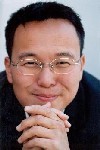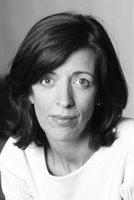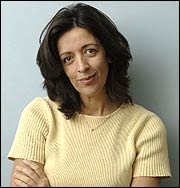So here's the line up of writers and poets for the "Readings" event 8.30, February 7th at Central Market Annex!
 Roger Robinson
Roger Robinson is a poet, short fiction writer and lyricist who lives between London and Trinidad. He has performed worldwide and is an experienced workshop leader and lecturer on poetry. His performances often incorporate words and music, and his one-man shows are:
The Shadow Boxer; Letter from My Father’s Brother; and
Prohibition (all premiered at the British Festival of Visual Theatre at Battersea Arts Centre). He was also chosen by Decibel as one of 50 writers who have influenced the black-British writing canon over the past 50 years. He has published a book of short fiction,
Adventures in 3D (2001) and a poetry collection,
Suitcase (2004), and is currently working on a full-length novel.
Up to 2000, Roger Robinson was programme co-ordinator of
Apples and Snakes. He was one of 30 poets chosen for the New Generation Poets collection at the National Portrait Gallery.
 Louise Doughty
Louise Doughty is a novelist, playwright and critic. She is the author of five novels:
Crazy Paving,
Dance with Me,
Honey-Dew,
Fires in the Dark and
Stone Cradle, and five plays for radio.
She has worked widely as a critic and broadcaster in the UK, where she lives, including a spell as Theatre Critic for the
Mail on Sunday and presenter of several books and arts series for BBC Radio 4. In June 2007, Simon & Schuster UK will publish her first work of non-fiction,
A Novel in a Year, based on
her highly successful newspaper column of 2006. Throughout 2007, she will be writing another column for the
Daily Telegraph's
Saturday Review entitled
A Writer's Year.
Isagani R. Cruz writes plays, essays, and short stories in Filipino and English, for which he has won numerous awards, including a SEAWRITE award, a Centennial Literary Contest award, and a Gawad Balagtas award. He has been named to the Hall of Fame of the Carlos Palanca Memorial Awards in Literature. He has written or edited more than 30 books.
He is also the Former Philippine Undersecretary of Education, the Director of the Teachers Academy of Far Eastern University in Manila, a Visiting Lecturer at the Ateneo de Manila University, and a Professor Emeritus, a University Fellow, and the Executive Publisher of Academic Publications of De La Salle University Manila. (A much longer version of his CV can be found
on his blog!)
 Tan Twan Eng
Tan Twan Eng was born in Penang, but lived in various places in Malaysia as a child. He studied law through the University of London, and later worked as an advocate and solicitor in one of Kuala Lumpur's most reputable law firms. He also has a first-dan ranking in aikido and is a strong proponent for the conservation of heritage buildings. He has spent the last year travelling around South Africa, and is currently living in Malaysia. His first novel
The Gift of Rain is to be published in the UK by Myrmidon Books in March 2007.
Kam Raslan is a writer and director, working in film, TV and theatre in Malaysia. He is a columnist in
The Edge weekly and
Off The Edge magazine. Some of his writings were previously compiled in
Generation. He also writes for Instant Café Theatre and will one day make his feature film. His first novel
Confessions of an Old Boy has been serialised in
Off the Edge and will be published in book form in March 2007 by Marshall-Cavendish.
Dina Zaman writes both fiction and non-fiction, and is interested in "religion, society and what makes Malaysians tick". She has a B.A. in Mass Communication and Creative Writing from Western Michigan University and an M.A. in Creative Writing from Lancaster University and has been published abroad and locally. Her first collection of short fiction was
night & day, published by Rhino Press (1997), while her play
Harakiri was produced by
Chakra Works in 2003.
She began her career in journalism with her column
Dina's Dalca in the
New Straits Times. She has also written for other publications including
Men's Review,
Marie Claire, and the
Rentakini section of online newspaper
Malaysiakini which she also edited. Her new book,
I Am Muslim is due to be published by Silverfish Books in March 2007.
Postscript:Ruhayat X is in the process of making me a sexy poster for the event which I will post tomorrow.
Please note that, sadly, Edwin Thumboo who was on the list earlier, will not now be reading.
 There must be a lot of authorly fingernail chewing going on at the moment as we await the result of this year's Man Booker Prize. (I'm sitting here in yet another Ubud internet cafe waiting for the result to come in ... 'cos I don't have anyone but you guys to talk to tonight and everything closes so early here.)
There must be a lot of authorly fingernail chewing going on at the moment as we await the result of this year's Man Booker Prize. (I'm sitting here in yet another Ubud internet cafe waiting for the result to come in ... 'cos I don't have anyone but you guys to talk to tonight and everything closes so early here.)






